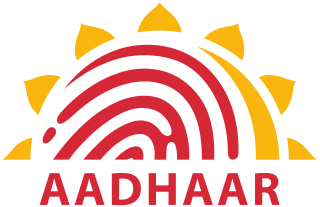
The Data Protection Directive, officially Directive 95/46/EC, enacted in October 1995, was a European Union directive which regulated the processing of personal data within the European Union (EU) and the free movement of such data. The Data Protection Directive was an important component of EU privacy and human rights law.
The right to privacy is an element of various legal traditions that intends to restrain governmental and private actions that threaten the privacy of individuals. Over 150 national constitutions mention the right to privacy. On 10 December 1948, the United Nations General Assembly adopted the Universal Declaration of Human Rights (UDHR), originally written to guarantee individual rights of everyone everywhere; while right to privacy does not appear in the document, many interpret this through Article 12, which states: "No one shall be subjected to arbitrary interference with his privacy, family, home or correspondence, nor to attacks upon his honour and reputation. Everyone has the right to the protection of the law against such interference or attacks."

Mass surveillance is the intricate surveillance of an entire or a substantial fraction of a population in order to monitor that group of citizens. The surveillance is often carried out by local and federal governments or governmental organizations, but it may also be carried out by corporations. Depending on each nation's laws and judicial systems, the legality of and the permission required to engage in mass surveillance varies. It is the single most indicative distinguishing trait of totalitarian regimes. It is often distinguished from targeted surveillance.

The Information Commissioner's Office (ICO) is a non-departmental public body which reports directly to the Parliament of the United Kingdom and is sponsored by the Department for Science, Innovation and Technology. It is the independent regulatory office dealing with the Data Protection Act 2018 and the General Data Protection Regulation, the Privacy and Electronic Communications Regulations 2003 across the UK; and the Freedom of Information Act 2000 and the Environmental Information Regulations 2004 in England, Wales and Northern Ireland and, to a limited extent, in Scotland. When they audit an organisation they use Symbiant's audit software.
Center for Democracy & Technology (CDT) is a Washington, D.C.–based 501(c)(3) nonprofit organisation that advocates for digital rights and freedom of expression. CDT seeks to promote legislation that enables individuals to use the internet for purposes of well-intent, while at the same time reducing its potential for harm. It advocates for transparency, accountability, and limiting the collection of personal information.
A privacy policy is a statement or legal document that discloses some or all of the ways a party gathers, uses, discloses, and manages a customer or client's data. Personal information can be anything that can be used to identify an individual, not limited to the person's name, address, date of birth, marital status, contact information, ID issue, and expiry date, financial records, credit information, medical history, where one travels, and intentions to acquire goods and services. In the case of a business, it is often a statement that declares a party's policy on how it collects, stores, and releases personal information it collects. It informs the client what specific information is collected, and whether it is kept confidential, shared with partners, or sold to other firms or enterprises. Privacy policies typically represent a broader, more generalized treatment, as opposed to data use statements, which tend to be more detailed and specific.
Bellur Narayanaswamy Srikrishna is an Indian jurist and a retired judge of the Supreme Court of India. From 1993 to 1998, he headed the "Srikrishna Commission" that investigated causes and apportioned blame for the Bombay riots of 1992–93. He is the chairman of the Financial Sector Legislative Reforms Commission (FSLRC) and also works as an independent arbitrator.
Privacy law is the body of law that deals with the regulating, storing, and using of personally identifiable information, personal healthcare information, and financial information of individuals, which can be collected by governments, public or private organisations, or other individuals. It also applies in the commercial sector to things like trade secrets and the liability that directors, officers, and employees have when handling sensitive information.

The Information Technology Act, 2000 is an Act of the Indian Parliament notified on 17 October 2000. It is the primary law in India dealing with cybercrime and electronic commerce.

Dhananjaya Yeshwant Chandrachud is an Indian jurist, who is the 50th and Current Chief Justice of India serving since November 2022. He was appointed a judge of the Supreme Court of India in May 2016. He has also previously served as the chief justice of the Allahabad High Court from 2013 to 2016 and as a judge of the Bombay High Court from 2000 to 2013. He is also a former executive chairperson (ex officio) of the National Legal Services Authority.

Aadhaar is a 12-digit unique identity number that can be obtained voluntarily by all residents of India, based on their biometrics and demographic data. The data is collected by the Unique Identification Authority of India (UIDAI), a statutory authority established in January 2009 by the Government of India, under the jurisdiction of the Ministry of Electronics and Information Technology, following the provisions of the Aadhaar Act, 2016.
Joint Parliamentary Committee (JPC) is one type of ad hoc Parliamentary committee constituted by the Indian parliament.

The General Data Protection Regulation is a European Union regulation on information privacy in the European Union (EU) and the European Economic Area (EEA). The GDPR is an important component of EU privacy law and human rights law, in particular Article 8(1) of the Charter of Fundamental Rights of the European Union. It also governs the transfer of personal data outside the EU and EEA. The GDPR's goals are to enhance individuals' control and rights over their personal information and to simplify the regulations for international business. It supersedes the Data Protection Directive 95/46/EC and, among other things, simplifies the terminology.

Giovanni Buttarelli was an Italian civil servant, who served as the European Data Protection Supervisor (EDPS). On 4 December 2014, he was appointed by a joint decision of the European Parliament and the Council. He was due to serve a five-year term in this position. Previously, he served as Assistant EDPS, from January 2009 until December 2014. He was also a member of the Italian judiciary with the rank of judge of the Court of Cassation.
The Insolvency and Bankruptcy Code, 2016 (IBC) is an Indian law which creates a consolidated framework that governs insolvency and bankruptcy proceedings for companies, partnership firms, and individuals.
The California Consumer Privacy Act (CCPA) is a state statute intended to enhance privacy rights and consumer protection for residents of the state of California in the United States. The bill was passed by the California State Legislature and signed into law by the Governor of California, Jerry Brown, on June 28, 2018, to amend Part 4 of Division 3 of the California Civil Code. Officially called AB-375, the act was introduced by Ed Chau, member of the California State Assembly, and State Senator Robert Hertzberg.
Consumer Protection Act, 2019 is an Act of the Parliament of India. It repeals and replaces the Consumer Protection Act, 1986.

The Information Technology Rules, 2021 is secondary or subordinate legislation that suppresses India's Intermediary Guidelines Rules 2011. The 2021 rules have stemmed from section 87 of the Information Technology Act, 2000 and are a combination of the draft Intermediaries Rules, 2018 and the OTT Regulation and Code of Ethics for Digital Media.

The American Data Privacy and Protection Act (ADPPA) was a United States proposed federal online privacy bill that, if enacted into law, would have regulated how organizations keep and use consumer data. The bipartisan, bicameral bill was the first American consumer privacy bill to pass committee markup, which it did with near unanimity.
The Digital Personal Data Protection Act, 2023 is an act of the Parliament of India to provide for the processing of digital personal data in a manner that recognises both the right of individuals to protect their personal data and the need to process such personal data for lawful purposes and for matters connected therewith or incidental thereto. This is the first Act of the Parliament of India where "she/her" pronouns were used unlike the usual "he/him" pronouns.







